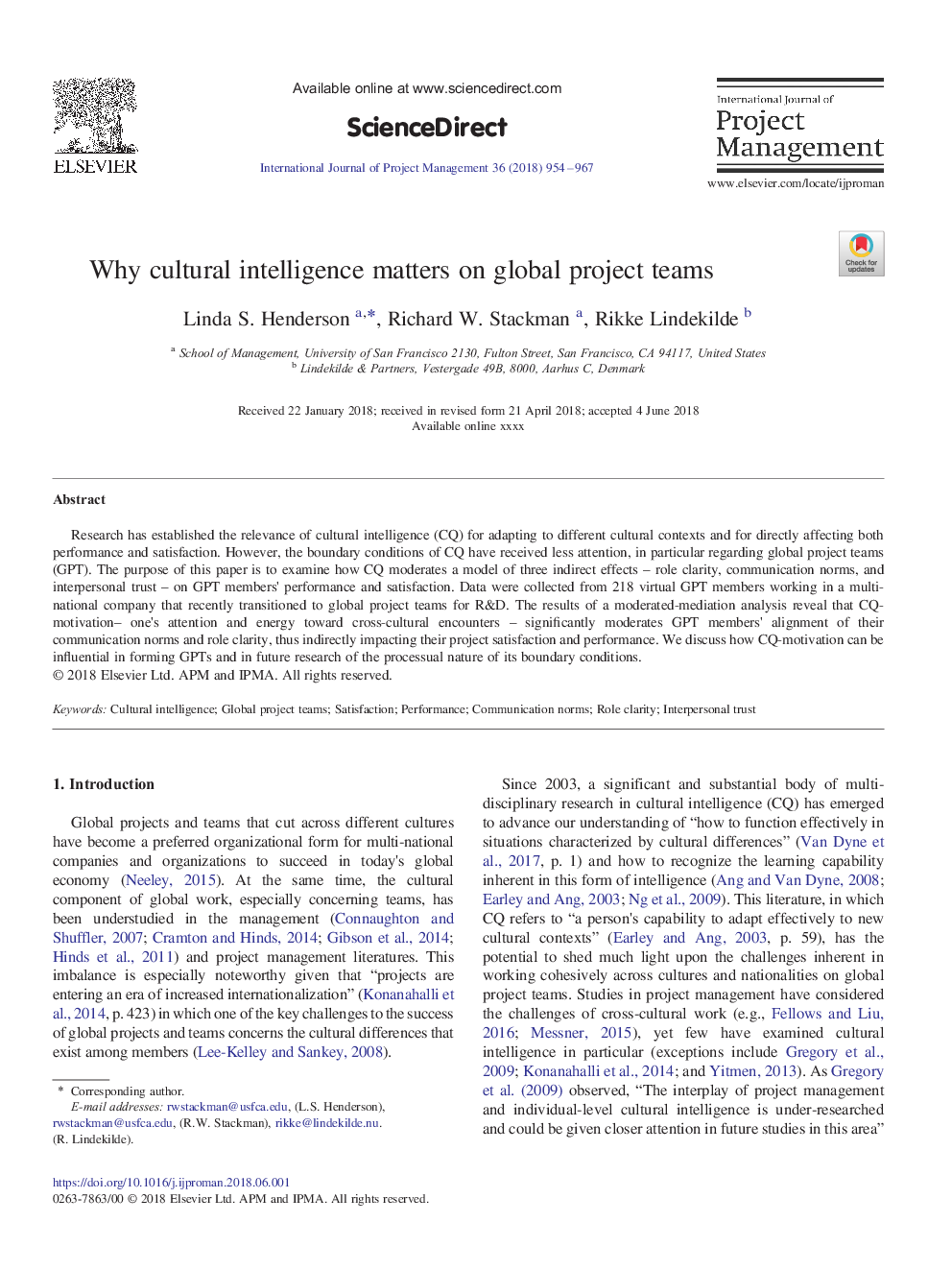| Article ID | Journal | Published Year | Pages | File Type |
|---|---|---|---|---|
| 6747995 | International Journal of Project Management | 2018 | 14 Pages |
Abstract
Research has established the relevance of cultural intelligence (CQ) for adapting to different cultural contexts and for directly affecting both performance and satisfaction. However, the boundary conditions of CQ have received less attention, in particular regarding global project teams (GPT). The purpose of this paper is to examine how CQ moderates a model of three indirect effects - role clarity, communication norms, and interpersonal trust - on GPT members' performance and satisfaction. Data were collected from 218 virtual GPT members working in a multi-national company that recently transitioned to global project teams for R&D. The results of a moderated-mediation analysis reveal that CQ-motivation - one's attention and energy toward cross-cultural encounters - significantly moderates GPT members' alignment of their communication norms and role clarity, thus indirectly impacting their project satisfaction and performance. We discuss how CQ-motivation can be influential in forming GPTs and in future research of the processual nature of its boundary conditions.
Related Topics
Physical Sciences and Engineering
Engineering
Civil and Structural Engineering
Authors
Linda S. Henderson, Richard W. Stackman, Rikke Lindekilde,
